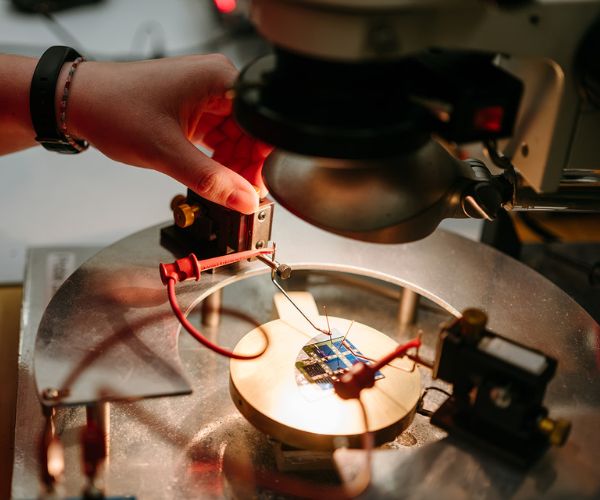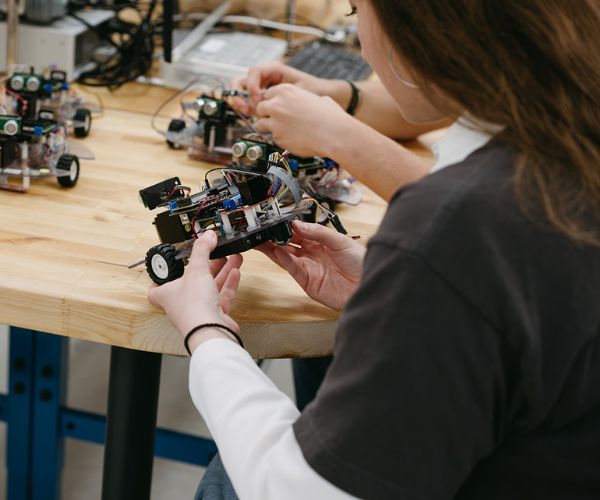Visit Carleton! Book your tour today.
Program Details
Electrical Engineering is everywhere. From the microchips and photonics that power the internet and 5G smartphones to the enormous power grids that deliver energy to homes and entire industries. Electricity has transformed modern life, and our ability to capture it has thoroughly improved society. There’s no going back – with AI algorithms and new electric vehicles connecting to the grid, demand for electrical innovation continues to grow.
Labs and Facilities
In a Bachelor of Electrical Engineering program, students explore the many facets of this broad discipline, which includes microchip fabrication, photonics, electromagnetics, communications hardware such as antennas and radar, as well as power transformers, electrical machines and power grids. You will also gain practical experience through access to specialized facilities, including analog and digital labs and our MicroFabrication Facility.
Co-op
Carleton offers students a paid Co-op option with work terms of 4, 6, 8, 12 or 16 months.
Work Experience
Ottawa is home to one of Canada’s largest concentrations of government agencies and high-tech companies. Located near campus is Kanata North, Canada’s largest technology park—offering Carleton students a direct pipeline to hundreds of companies looking for talent in electrical engineering.

Get started in Carleton360 to receive tailored information on our programs, student services and community.

Career Outcomes
Explore your passions, refine new skills and discover the career that’s right for you.
The skills learned through the study of electrical engineering are highly transferable and will prepare you for a wide range of careers in various industries.
Sample Careers
- Biomedicine
- Biotechnology and Biomedical Engineering
- Communications Technology
- Computing Hardware Development
- Electrical Power Systems
- Fibre Optic Communications
- Health
- High-Speed Integrated Circuit Chips
- Local Area Networks
- Network Technology
- Satellite Communications
- Smartphones
- Software Design
- Vehicular Electronic Controls and Navigation

Sample Courses
ELEC 2602 - Electric Machines and Power
Modeling and analysis of basic electric power systems. Single-phase and three-phase circuits: real and reactive power, per-phase analysis, power factor correction. Electro-mechanical energy conversion: operation, characteristics and analysis of transformers, DC-, induction-, and synchronous electric machines. Motor and generator operation.
ELEC 4609 - Integrated Circuit Design and Fabrication
Introduction to nMOS IC design: static logic gates, noise margin, transmission gates, factors influencing switching speed, dynamic logic, input protection, output buffers, circuit simulation with SPICE. Laboratory work includes design and layout of a simple nMOS IC that is fabricated and returned for testing.
Visit the Undergraduate Calendar to view a comprehensive list of course offerings for this program and discover the exciting things Carleton students are learning in the classroom!

